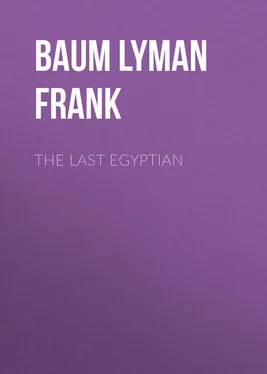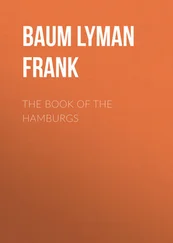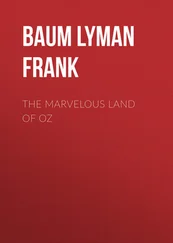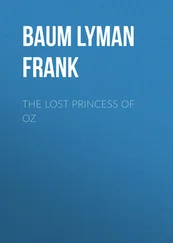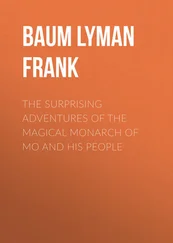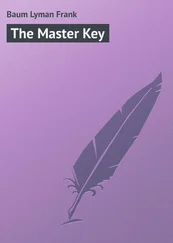Lyman Baum - The Last Egyptian
Здесь есть возможность читать онлайн «Lyman Baum - The Last Egyptian» — ознакомительный отрывок электронной книги совершенно бесплатно, а после прочтения отрывка купить полную версию. В некоторых случаях можно слушать аудио, скачать через торрент в формате fb2 и присутствует краткое содержание. Жанр: foreign_antique, foreign_prose, на английском языке. Описание произведения, (предисловие) а так же отзывы посетителей доступны на портале библиотеки ЛибКат.
- Название:The Last Egyptian
- Автор:
- Жанр:
- Год:неизвестен
- ISBN:нет данных
- Рейтинг книги:5 / 5. Голосов: 1
-
Избранное:Добавить в избранное
- Отзывы:
-
Ваша оценка:
- 100
- 1
- 2
- 3
- 4
- 5
The Last Egyptian: краткое содержание, описание и аннотация
Предлагаем к чтению аннотацию, описание, краткое содержание или предисловие (зависит от того, что написал сам автор книги «The Last Egyptian»). Если вы не нашли необходимую информацию о книге — напишите в комментариях, мы постараемся отыскать её.
The Last Egyptian — читать онлайн ознакомительный отрывок
Ниже представлен текст книги, разбитый по страницам. Система сохранения места последней прочитанной страницы, позволяет с удобством читать онлайн бесплатно книгу «The Last Egyptian», без необходимости каждый раз заново искать на чём Вы остановились. Поставьте закладку, и сможете в любой момент перейти на страницу, на которой закончили чтение.
Интервал:
Закладка:
Kāra smiled queerly as he glanced around the room.
“Others argue concerning ancient Egypt,” he muttered; “but I alone know the truth.”
A pile of papyrus rolls in another cavity seemed of less importance than those so carefully arranged in boxes. Kāra brought an armful of them to the central slab, dusted them with his rope, and selected fifteen of their number after a cursory glance at their contents. The others he restored to their place. This being accomplished, he took up his lamp and returned to the passage, this time circling the pillar of rock to the right.
It led into an immense oblong chamber, so vast that the light of Kāra’s bronze lamp seemed to penetrate the blackness but a few feet in advance. But other lamps were suspended from huge bronze brackets, and several of these the Egyptian proceeded to light, finding them nearly all supplied with oil.
Then, stepping backward, he gazed about him with an irrepressible sensation of awe. The huge chamber was filled with mummy-cases, arranged upon solid slabs of Aswan granite. Nearest to the entrance were a dozen or so slabs that were unoccupied. Then appeared a splendid case of solid ebony, elaborately carved upon every inch of its surfaces. This had been made for Hatatcha in London, during her residence in that city, and secretly transported to this place by devices only known to her. The inscriptions were all in the sign language except the one word, “Hatatcha,” which appeared in Roman letters upon the cover. It was empty, of course, and Kāra proceeded to the next slab. Upon it lay the mummy of his great-grandmother, Thi-Aten, the one so naturally embalmed by the dwarf Sebbet. Her limbs were bandaged separately and the contour of her face might be clearly seen through the thin and tightly-drawn linen that covered it. Kāra sighed and made a profound obeisance to the mummy before proceeding up the chamber.
As he advanced, the mummies increased in age and also in the magnificence of their cases and the importance of their inscriptions. Some of the slabs were covered thickly with hieroglyphics relating the life history of their occupants, while on them were crowded curious ushabtiu figures, amulets and scarabs. Finally Kāra reached the end of the chamber and paused beside the mummy of the great Ahtka-Rā, who, while not king in name, had nevertheless ruled Egypt during his lifetime through the weak Rameses II, whom men ignorantly call “the Great.”
Long the Egyptian knelt before the remains of his great ancestor. Rameses himself, and Seti his father, and many other kings of Egypt were lying in the museum at Cairo, to be impudently stared at by crowds of curious modern tourists; but this famous one had wisely provided for his own seclusion and that of his posterity. It was Ahtka-Rā who had constructed this hidden tomb during his lifetime, and he kept the secret so well that no painted or graven record of it existed to guide a meddling foreign race to its discovery in the years that were to come.
Kāra’s eyes fairly gloated upon the mummy case of his wonderful ancestor. It was studded thick with precious stones, any of which might be deemed a fortune to one who, like himself, had existed so long in a lowly condition. But he did not disturb these gems. Instead, he touched a spring in the slab, a portion of which slid forward and revealed an opening.
Kāra took his lamp and crept into the aperture. There were seventeen steps leading downward; then came a short passage, and he entered another large chamber hewn from the solid rock.
Here was the treasure house of Ahtka-Rā, its contents doubtless primarily rifled from the treasure cities of Pithom and Raamses, which after his death were found to have been despoiled.
The entire room was faced with polished granite, and around the walls were granite tables to hold the treasure, as well as immense wide-mouthed vases of porphyry, malachite, lapis lazuli, carnelian and bronze. Upon the tables were heaps of chains, bracelets, ornaments and utensils of pure gold. In the center of the room stood twelve alabaster pedestals, two rows of six each, and each pedestal supported a splendid vase containing gems of various sorts. On the floor were numerous other vases and receptacles for jewels and golden ornaments, and one of these Kāra noticed was yet more than half filled with the precious coins of Darius Hystaspes, some of which his grandmother had used to provide herself with necessities because they were of a comparatively modern date and would arouse no suspicion that the source of their supply was the ancient tomb of Ahtka-Rā.
Indeed, it was easy to be seen that many of Ahtka-Rā’s successors had added to this treasure house instead of pilfering from it. The original store, contained in the twelve great malachite vases, was practically untouched, although Hatatcha must have drawn upon it at one time. All the treasure littering the tables and floor had been added since Ahtka-Rā had lain in his tomb.
Kāra’s face was unmoved, but his eyes glistened brightly. He thrust his hand into a jar and drew it out filled with rubies. They were of all sizes and shades of coloring and were polished in flat surfaces instead of being cut into rose facets according to modern methods. Some of the stones had small characters graven upon them, but usually they were smoothly polished.
The Egyptian now turned to the wall tables. Here were also rubies, diamonds, amethysts and emeralds, set in golden ornaments of many designs. Some of the stones were of so great a size as to be extremely valuable. A casket of dark wood inlaid with silver hieroglyphics attracted Kāra’s attention. He threw back the lid and took from it a massive chain of gold, which he threw over his head. Each link was finely engraved with characters relating the name of some king and a deed he had accomplished. Kāra read some of the inscriptions and was amazed. The chain had originally been made in twelve links by Bā-en-nĕter, the twelfth king dating from Mēnēs, during whose reign the Nile flowed honey for eleven days. His successor, Uătch-nēs, took the chain and added another link, and so the chain had grown through succeeding ages down to the time of Ahtka-Rā. No wonder it was long and heavy!
Kāra did not like to replace this marvelous chain. He dropped its links inside his burnous and left it hanging around his neck.
After an hour or more devoted to the inspection of these treasures, which the young man naturally regarded as his own, forgetting that Hatatcha had warned him he but held them in trust, Kāra reluctantly prepared to leave the chamber. First, however, he selected twenty-three great diamonds from a jar and concealed them in the folds of his turban. The turban is called the Egyptian’s pocket, because a burnous seldom has pockets, and many things can be secreted in the voluminous cloth of a turban.
“Here is one diamond for every year I have lived,” said Kāra. “Surely I am entitled to that many.”
But it did not satisfy him. He thrust his hand into the jar of rubies again and took all that his fingers could clutch. He loved the color of the rubies. They appealed to him.
Then he crept up the stairs, reëntered the mummy chamber, and closed the secret slide in the malachite slab upon which lay the mighty Ahtka-Rā.
Who, not initiated, would ever suspect the enormous wealth lying so close at hand? Kāra sighed deeply and held himself proudly erect. He was just beginning to realize his own importance.
Extinguishing the lights of the lamps he had kindled in this chamber, he retraced his steps to the library, where he gathered up the fifteen rolls of papyrus, carrying them in the front breadth of his burnous while he held fast to the hem. In this way he returned along the arched passage until he came to the rock door which he had left ajar. He climbed through the opening and thrust the rock back into place, listening while the heavy bolt fastened itself with a sharp click.
Читать дальшеИнтервал:
Закладка:
Похожие книги на «The Last Egyptian»
Представляем Вашему вниманию похожие книги на «The Last Egyptian» списком для выбора. Мы отобрали схожую по названию и смыслу литературу в надежде предоставить читателям больше вариантов отыскать новые, интересные, ещё непрочитанные произведения.
Обсуждение, отзывы о книге «The Last Egyptian» и просто собственные мнения читателей. Оставьте ваши комментарии, напишите, что Вы думаете о произведении, его смысле или главных героях. Укажите что конкретно понравилось, а что нет, и почему Вы так считаете.
